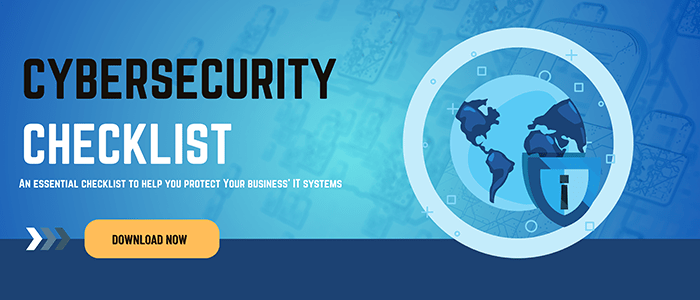The Focus of Tech Training for Your Staff

Summary: Create a company culture that appreciates training and continuing education. Dave Hodgdon and Steve Ripper of PCG IT discuss why training is so important for employees and technology. Listen or read more to find out how to focus tech training for your staff.
Mike: Hey, it’s Tech Tuesday my friends. Tech Tuesday, how about a round of applause.
Dave Hodgdon: Tech Tuesday, here we go.
Mike: Tech Tuesday.
Steve Ripper: Like, so many wins ago. Not just so many months ago. So many wins ago.
Mike: So many wins ago is right. Well, they’re eight games out guys. They need something fast.
Dave: They got a win yesterday all right.
Mike: Yeah, they did win yesterday. All right, Steve and Dave are here today from Portsmouth Computer Group, pcgit.com is where you can find them. They’ve got convenient locations in Portsmouth and Dover and now in Manchester and Portland, Maine. Good to see both of you guys. Thanks for coming in today.
Dave: [crosstalk] Our pleasure. Top of the morning, sir. Thanks for having us.
Mike: What time do you guys get up in the morning?
Dave: We get up at four in the morning and start listening to your show.
Mike: All right.
Steve: 7:10.
Mike: I’m not on a four in the morning, but that’s good. Thanks for listening though.
Dave: Pulling the shirt on as I’m getting in the car.
Mike: Just for the record, Dave, I go on a 5:30 then you can start listening. Don’t be listening to anything else until you get to my show at 5:30.
All right so today our helpful tech hints are going to be about the importance of tech focused training for your staff. What does that mean, Dave?
What is Tech Focused Training?
Dave: The majority of companies, Mike, are all about getting the right equipment in there. Servers, PCs, their tablets and stuff and they have what’s known as their line of business applications, but they never really focus on having a budget or actually spending the time to give the staff the necessary training and take advantage of these tools. There’s so much they can do. I feel the average person is probably using about 10% of the software. It’s untapped. There’s so much more they can do to be more productive.
Mike: So, the workers, the worker bees are not really efficient in all the technology and all the equipment that’s out there. There’s so much stuff, as you say, that they don’t get trained on or they just don’t know about, don’t use or what?
Dave: You hit all three of them right there. I think it’s important that management needs to understand what that person or that particular group (say it’s sales, say it’s admin, say it’s accounting) what can that do? ‘Cause the training for sales might be different than accounting. What do we need to do to get that group up to date so we’re getting the best possible productivity and efficiencies out of that staff?
Common Technology Mistakes
Mike: So, Steve what’s the common mistake companies make when it comes to their people and the technology they have brought for them?
Steve: So, like Dave was saying, the biggest thing, no training budget. It’s amazing how much money that they’ll spend either with us or however they do it in terms of the technology. They’ll put brand new computers everywhere. They’ll spend tens of, 40, 50 60,000 on a software package for whatever the line of business app. Then you go around and you walk and you meet all the people and they’ve had zero training. They don’t even know how to use windows. Right. It’s not their fault. So, no training budget. Right. So where is the planning for the year that says we’re going to either have someone come in and do how this happens or maybe send them to classes. There’s classes everywhere, down in Microsoft row and technology row. There’s tons of different packages that you can go and go do for a couple of days.
Online classes. Online classes are huge now where they do video training for Excel, Word, Windows, the app of your choice. No training budget.
Mike: I’m amazed by that. So, we’re talking about the company will invest tens and thousands of dollars in technology and all the hardware on the software. But then they just give the guys, ‘hey, read the manual’ type of thing.
Steve: Yeah, there’s no manual.
Dave: There isn’t, everything’s online, but I feel if you set just a budget for every dollar you spend. Spend 10 cents, 10% for training, you put $20,000 out there, put $2,000 toward training. Make it worth your investment. That’s why you send your kids to school. You’re just not going to sit at home. You’re sending them to school, you’re investing in your education to move them forward. Now we’re in our twenties, we’re in our thirties or forties there’s so many ways to do things better.
Mike: So, what you guys are basically saying, if I understand you correctly, that the companies are not being as efficient as they should be or could be?
Steve: Yeah, and sometimes it’s just communication between the owners and the employees. The workers, [crosstalk] yeah. I see a lot of times where an owner might actually spring for some training. No one ever asks them. They never, the two groups don’t have a conversation about whether is there a . . . “Hey boss, is there training budget? Would you send me?” Sometimes employees don’t even ask the question, “Hey Dave, would you send me to this class?” A lot of owners don’t have the time to go find a class that their people would go to, if that makes any sense. [crosstalk] Right. It does. Sometimes the employer, the employee needs to go, “Hey, I would really like to learn how to do this. Would you, could I go do that for three days?”
A lot of times they’d find the owner would say, “Absolutely, I didn’t even know you wanted to do that.” So those communication lines aren’t always open.
Common Training Topics
Mike: So, what are some of the common topics that people ask for in training requests? What type of things are people looking to learn about?
Steve: So, I do a lot of the trainings for them, cause as you can tell Mike I talk all the time. So, it actually lends to the whole training thing. Lots of Office 365, how to use Outlook, how to use email, security. Right. So, we’re getting a lot of requests for [crosstalk]
Mike: These are simple things, everyday tasks that people use all the time.
Steve: A lot of the stuff we’ve been talking about with you when we come in here. They want me to come in and talk to their people about how to avoid opening that email that they shouldn’t email, how to deal with viruses or how to avoid scams, right.
How to use Outlook, how to use it efficiently. And every time I do one of these trainings Mike, there’s always this moment where the person goes, “I didn’t, I’ve been sitting in front of Outlook for 10-15 years. I had no idea you could do that. I had no idea.”
Mike: Wow.
Dave: We’ve had great luck with what we call ‘lunch and learns’ right now. Steve, we’ve got him scheduled for a lot of organizations. Buy your staff the lunch, we go in the conference room and we’ll do a two-hour session. 365.
Mike: It’s a great idea.
Dave: Let’s talk about security. It’s really not costing much money at all. They’re doing their lunch, couple of hours of our time, short money and the group that collaborates you can start seeing. Then they had these little group, “Oh, I didn’t know we could do that.”
And now you’re getting them to start speaking about stuff. PCG is a big believer in education. Any one of my staff members comes to me, they want some training, they’re going to get it. There’s incentives to get training to get additional certification. I think you need to embrace that in your culture. If people want to learn, let them do more. You’re only going to help the company.
Maximizing Your Training Budget
Mike: Oh yes. So, what strategies can companies actually use, Steve, to make the training kind of easier and smoother and less of a hit on the bottom line?
Steve: So, like Dave mentioned, we always suggest things like doing the ‘lunch and learn’ during the lunch. Or if you have a period of the year where you know your sales are a little bit down, you got a slower time of year, maybe you schedule something like that.
So that’s the whole planning and the budget because when we’re talking with owners about this, the thing that we’re pushing up against is they’re not just thinking about maybe the cost of hiring PCG to have someone come in and train them. They’re also adding to that, as they should, the cost of taking their 25 workers out of productivity for two hours or an hour. Everyone stops. So that’s what they’re thinking of. So, we try to get around those things by saying, do it during lunch time. What’s the cost of a lunch if you’re still getting that eight hours of day from your people, but you’re also getting some training. And then the other part of it is, you have to just convince them that the long-term effects of getting the people into the room and letting them ask all the . . . so the other part, Mike, is that I’m always amazed at the users, the questions that they’ve been holding internally, forever.
They’re just afraid to ask them. So, if you get them in a room with everybody else and someone’s standing up there with a projector, you will get all kinds of questions that you just know immediately, that they’ve been dying to ask this question. They just been like, “Hey, how does that work?” And you’re like, no, it’s a great question. So, you have to convince the owners that it’s worth it to take the people offline for whatever you have to do, both the budget and the time. To the long-term benefits of training your people up so that they are just more efficient when they’re sitting in front of the stuff you bought them. It is worth it.
Mike: So, what if the companies don’t take the initiative? What can the users actually do themselves? They have to take the initiative and just kind of find manuals online or just learn themselves, right?
Dave: I’ve found that I’m always a big advocate for a company, Mike, when they make a big move to a new software application. We’re using product A, we’re going to go to product B. That is hard to make that transition but I really like to get the company to get that new system up and running in a test environment. So, you’re almost kind of like two systems running and allow them to play with them for one or two months and get used to it before they go live because they’re going to ask the questions. So, when they do the transition, you’ve embraced employees to be with it first, you’ve given them a chance to play with it. And then when it’s time to go live, they actually could go right into it. Compared to just making a change, All right, here’s the new stuff.
It’s hard to have two systems in place. There’s no question about that. And you’ve got to give them a little extra. They can’t do their full job. You’ve got to dedicate a few hours a day to that new system. It’s hard to do but you need to do that.
Mike: That makes sense. Steve Ripper and Dave Hodgdon, part of the Tech Tuesday, Portsmouth Computer Group. You guys, I want to give you some breaking news today. Some breaking news today. I bought an additional laptop.
Dave: Oh, are you with windows XP?
Mike: It’s Windows 10 [crosstalk] yes. So, give me all the kudos. [crosstalk] You want some training like [inaudible] Thank you very much everybody.
Steve: Right? Seriously, you do the mic drop the conspiracy theories out and you went and bought the OS. [crosstalk] ah, yeah, yeah.
Mike: Yeah. No, no, no. Actually, I’m just navigating through and just getting used to it.
Steve: So, the budget for training, should we plan on that radio show? We’re going to have one radio show where Mike just brings all his questions. Just everything you want to know about it.
Mike: Yeah. Have a Windows 10, we’ll talk about windows 10, yeah. I just thought I’d make your day a little bit. [crosstalk] That very good. All right guys, any final words? Are still looking for workers?
Dave: We just got two great amazing hires. We’re always looking to expand. Always be recruiting. Yes. We’re looking for some great staff. Business is great. And PCG is in a good spot right now.
Mike: That sounds good. That’s good to hear always.
Steve: We’re available for your training. We were talking about this. We’ll do training. It’s not just that you should do it, but we can do it for you.
Mike: They got convenient locations here in the sea coast, Portsmouth and Dover. Brand new locations in Manchester up in Portland, Maine as well. How’s that location going for you?
Dave: Great. I think Steve just hit, give us a ring and we’ll do some lunchtime training for you.
Mike: All right tech Tuesday all powered by Portsmouth Computer Group. PCGIT for world-class IT service and customer support. Check out the website. PCGIT.com. Steve and Dave thanks for making my morning.
Dave: My pleasure.




